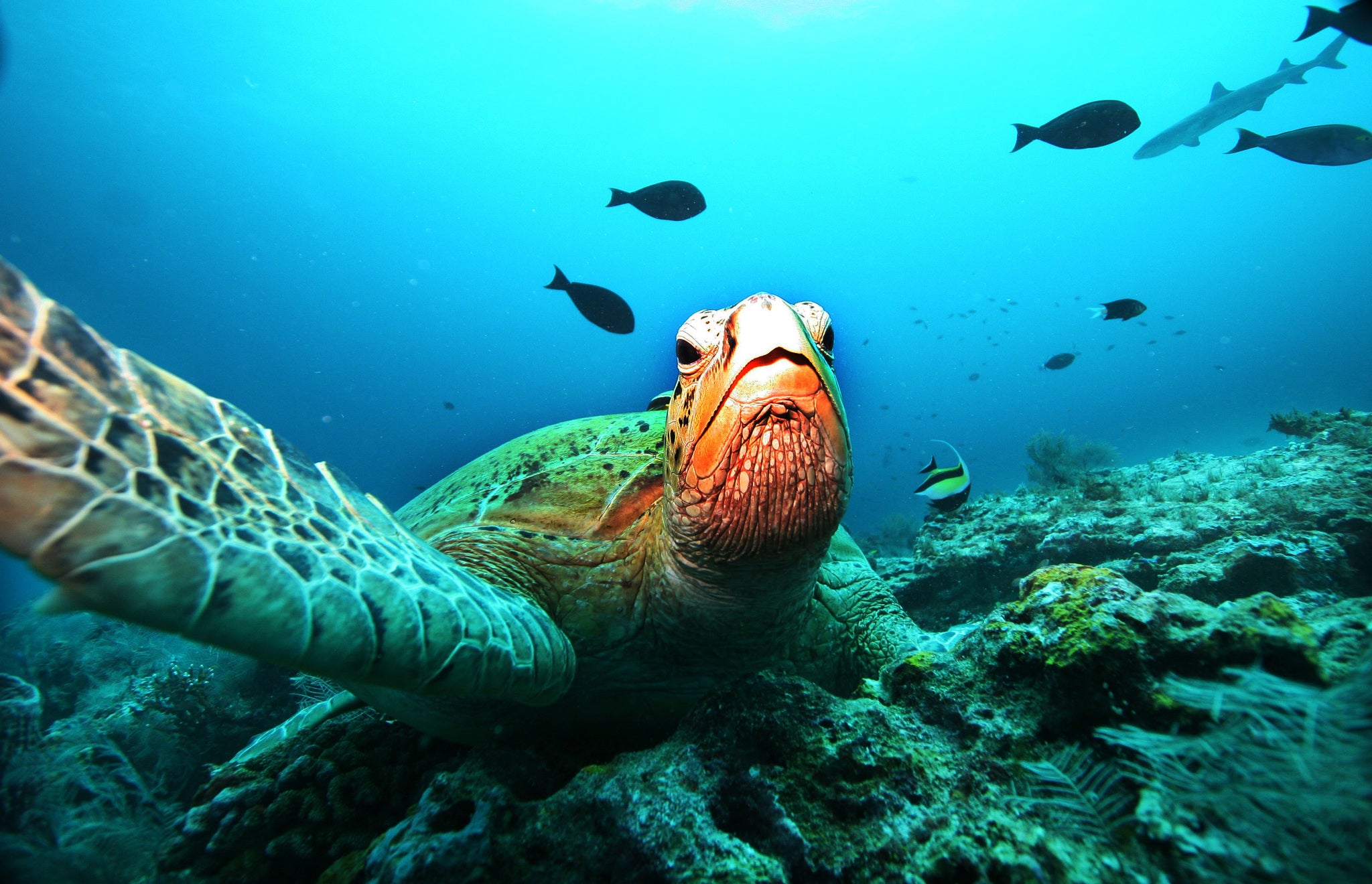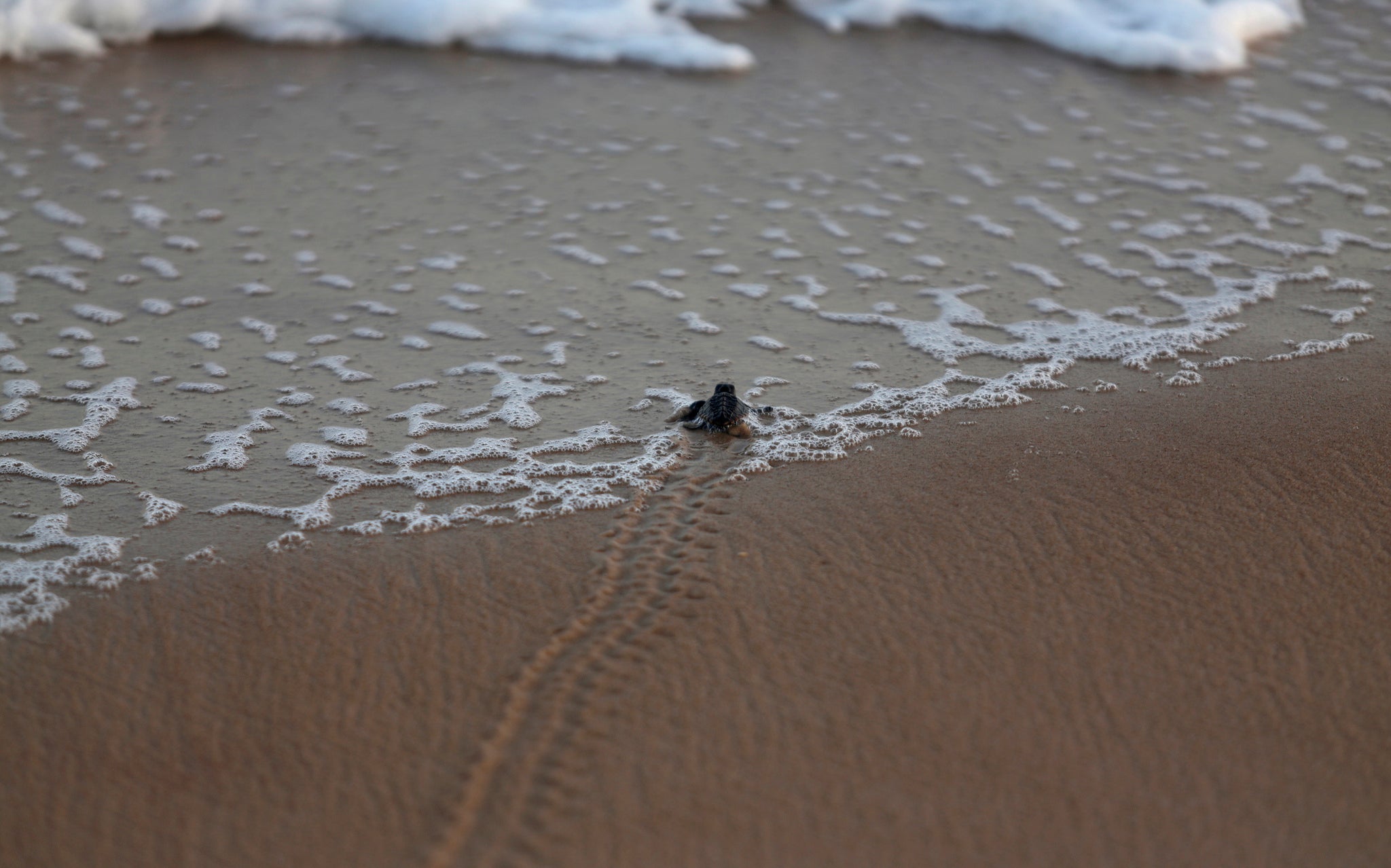Climate change is creating more female sea turtles than males - and it could end the species
The animal's temperature-dependant reproductive process could be good news in the next decades but lead to extinction in the long term

Temperature rises triggered by climate change could kill off the world’s population of sea turtles as hotter sands – where the creatures bury their eggs – cause more females than males to be born.
This is because the gender of sea turtle offspring is not decided by sex chromosomes, but by the ambient temperature of the beaches where mothers bury their eggs.
“The logic is that warming temperatures will lead to more female hatchlings being produced, because the females are produced at the warmer temperatures,” Professor Graeme Hays, one of the lead authors of the new study published in the journal Nature Climate Change, told The Guardian.
At what Hays calls the “pivotal temperature” of 29C the ratio of male to female sea turtles is balanced, but an increase of just two degrees could “almost exclusively produce female hatchlings”.
The same study also found a strong correlation between the colour of a beach and the gender ratio of hatchlings, with light-coloured sandy beaches reflecting more heat and so producing less female sea turtles. Darker beaches absorbed more heat and produced more females – as many as 93 per cent in some cases.

In the short term these changes might actually be beneficial to sea turtles, as males breed more often than females meaning that over the next two to three decades there will actually be a “population expansions” as more females lay more eggs.
However, Professor Hays warned that this pattern was far from sustainable. “Ultimately, if you extrapolate long enough into the future […] once you get 100 years or more into the future, then things start to look serious. You have so few males left that it’s likely to be a problem. There will be heaps of female but not enough males to fertilise all those eggs.”
The study suggested that while sea turtle populations might migrate to cooler parts of the world as a result, humans could also help by moving nests from dark beaches to light beaches or planting vegetation as shade on beaches with hotter temperatures.
However, these temperature changes are likely to affect other animals as well. Crocodiles, alligators and several species of lizard also have temperature-dependant gender, although for each animal the precise “pivotal temperature” differs.
Scientists are still uncertain why this particular reproductive quirk evolved, though some speculate that temperature-dependant gender allowed sex to best match the baby’s environment, while others suggest that it gave mothers some choice over the gender of their offspring.
Join our commenting forum
Join thought-provoking conversations, follow other Independent readers and see their replies
Comments
Bookmark popover
Removed from bookmarks